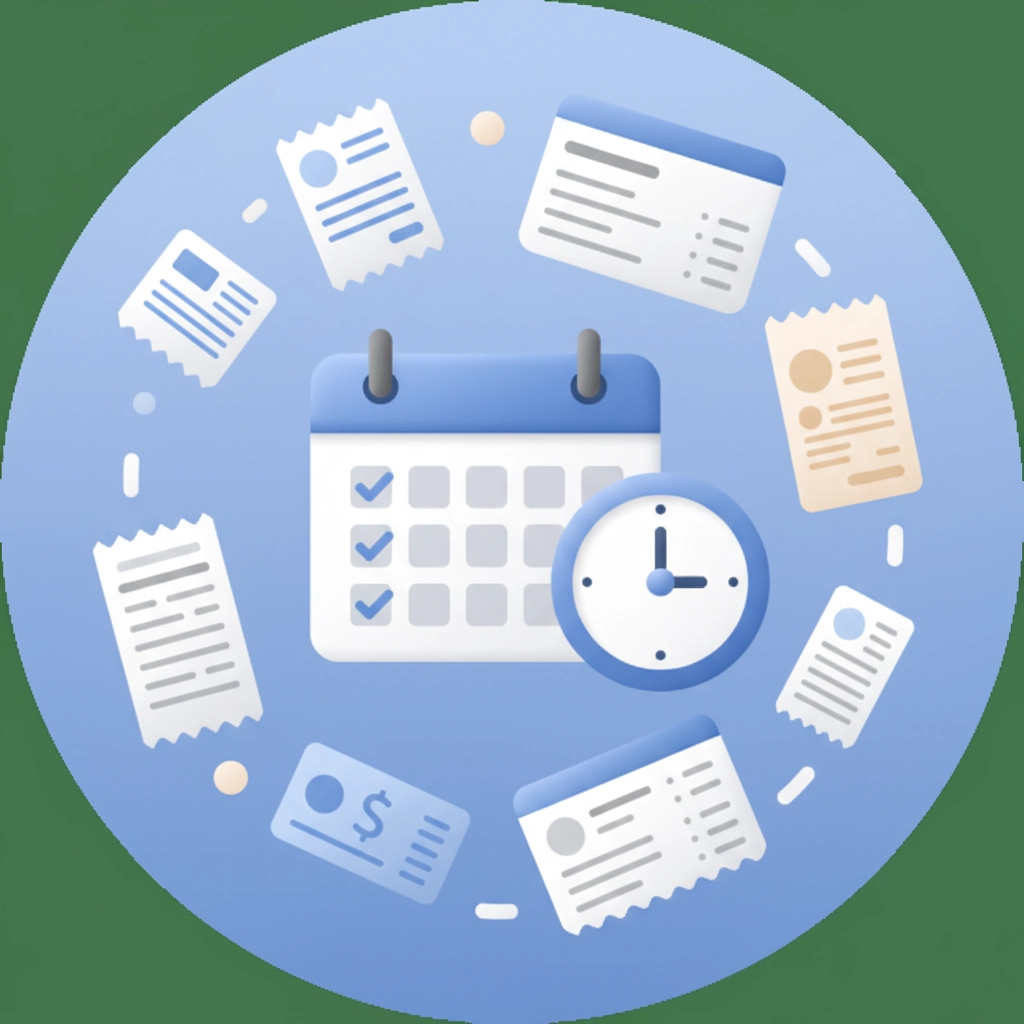How to Prep Your Books for Tax Season Without the Last-Minute Panic
- Susan Hagen
- Nov 10, 2025
- 5 min read
Picture this: It's March 15th, and you're frantically digging through shoeboxes of receipts, trying to remember if that business lunch in July was actually deductible. Sound familiar? You're not alone. But here's the thing, tax season doesn't have to be a stress-fest if you know how to prep your books the right way.
The secret isn't working harder during tax season; it's working smarter all year long. With just 30 minutes a week dedicated to keeping your financial house in order, you can transform tax time from a nightmare into a smooth, maybe even boring process. And trust me, boring is exactly what you want when it comes to taxes.
Start with Rock-Solid Organization (Before You Need It)
The biggest mistake I see business owners make? Thinking they'll "get organized later." Later never comes, and then April hits like a freight train. Instead, set up systems that work on autopilot.
First things first, ditch the paper trail chaos. Every receipt, invoice, and expense should have a digital home from day one. Cloud-based accounting software like QuickBooks Online isn't just fancy technology; it's your tax season lifesaver. Upload receipts as they happen, categorize expenses immediately, and watch your future self thank you when tax time rolls around.
Create folders (digital or physical) for different expense categories: office supplies, travel, meals, professional development, and so on. When everything has a designated place, you're not playing detective later trying to figure out what that random $47 charge was for.

Master the Monthly Money Date
Here's a game-changer: schedule a monthly "money date" with your books. Pick the same day each month, maybe the first Tuesday, and make it non-negotiable. During this time, you'll reconcile all your accounts, review transactions, and catch any weird stuff before it becomes a bigger problem.
Bank reconciliation might sound boring, but it's like flossing for your finances. Skip it, and you'll pay later. Compare your bank statements with your accounting records, and hunt down any differences immediately. Did a check not clear? Is there a mysterious charge? Fix it now, not in March when you can barely remember what you had for breakfast.
This monthly habit also helps you spot patterns in your spending, identify potential deductions you might be missing, and keep tabs on your cash flow. Plus, spreading this work throughout the year means you're never spending entire weekends drowning in financial paperwork.
Track Every Single Business Expense (Yes, Even the Small Ones)
I can't tell you how many business owners lose money by not tracking small expenses. That $3 parking meter fee? That's deductible. The coffee you bought during a client meeting? Also deductible. Those little amounts add up to real money back in your pocket.
The key is making expense tracking as effortless as possible. Apps like Expensify or Receipt Bank let you snap photos of receipts instantly and automatically categorize them. Many integrate directly with QuickBooks, so there's no double data entry. Take the photo, and you're done.
For mileage, use apps that automatically track your business driving. Manual mileage logs are a pain and usually incomplete, but automated tracking captures every business mile without you thinking about it.

Your Quarterly Financial Health Checkups
Think of quarterly reviews like going to the doctor: catch problems early, and they're much easier to fix. Every three months, sit down with your profit and loss statement, balance sheet, and cash flow report. Don't worry if these sound intimidating; they're just different ways of looking at how your business is doing financially.
During these quarterly reviews, look for trends. Are certain expenses creeping up? Is revenue seasonal? Are you missing potential deductions? This is also the perfect time to estimate your tax liability for the year and adjust how much you're setting aside.
If you work with a bookkeeper or accountant, schedule these quarterly meetings with them. They can spot issues you might miss and suggest strategies to minimize your tax bill legally.
The Tax Prep Calendar That Actually Works
Instead of cramming everything into April, spread tax prep throughout the year with this realistic calendar:
January: If you have employees or contractors, get those W-2s and 1099s out by January 31st. Also, start gathering documents for your own tax return: bank statements, credit card statements, and any tax documents that start arriving in the mail.
February: This is catch-up month. Review last year's records, make sure everything is properly categorized, and hunt down any missing receipts or documentation. It's much easier to remember what happened in December when it's February versus when it's April.
March: Meet with your tax preparer or, if you're doing it yourself, start pulling together your tax return. Having clean books makes this process infinitely easier. You'll actually have time to review everything and ask questions instead of rushing to beat the deadline.
April: File your taxes like a boss, knowing everything is accurate and complete. Or if you need more time, file an extension without stress because you're organized.

Set Up Your Tax Savings on Autopilot
Nothing ruins tax season like discovering you owe thousands of dollars you don't have. Avoid this nightmare by automatically setting aside money for taxes throughout the year.
Open a separate savings account just for taxes. Then, set up automatic transfers: every time money comes in, a percentage goes straight to tax savings. How much? It depends on your business structure and income level, but a good starting point is 25-30% for most small businesses.
This might seem like a lot, but it's better to save too much and get a refund than to save too little and scramble for cash. Plus, when tax season comes, you'll have the money sitting there waiting instead of trying to figure out how to pay the bill.
Stay Ahead of Tax Law Changes
Tax laws change more often than fashion trends, and what was deductible last year might not be this year. Subscribe to IRS updates, follow reputable tax professionals on social media, or join business owner groups where tax changes are discussed.
You don't need to become a tax expert, but staying informed helps you make better decisions throughout the year. Maybe there's a new deduction you can take advantage of, or perhaps there's a change that affects how you should structure certain transactions.
Know When to Call in the Pros
Here's the truth: trying to save money by doing everything yourself can end up costing you more in missed deductions, penalties, or just the sheer value of your time. A good tax professional pays for themselves through the deductions they find and the stress they eliminate.
Look for someone who understands your industry: every business has unique tax considerations. Make sure they're comfortable working with your accounting software; modern tax pros should be able to access your QuickBooks or similar software directly, making the whole process smoother.
Don't wait until March to establish this relationship. Schedule a mid-year consultation to review your tax strategy and make any needed adjustments. This proactive approach often saves significantly more money than just hiring someone to file your return.
The Bottom Line: Start Today, Thank Yourself Later
Preparing your books for tax season isn't about one big push in the spring: it's about building habits that make taxes a non-event. Start with organizing your current financial records, set up systems that work automatically, and commit to that monthly money date with your books.
Remember, the goal isn't perfection; it's progress. Even implementing one or two of these strategies will make a huge difference come tax time. Your future self will thank you when April rolls around and you're calmly reviewing organized records instead of frantically searching for missing receipts.
The best time to start preparing for next tax season was last year. The second-best time? Right now. Pick one strategy from this list and implement it this week. Your stress levels: and your bank account( will thank you.)
.png)
Comments